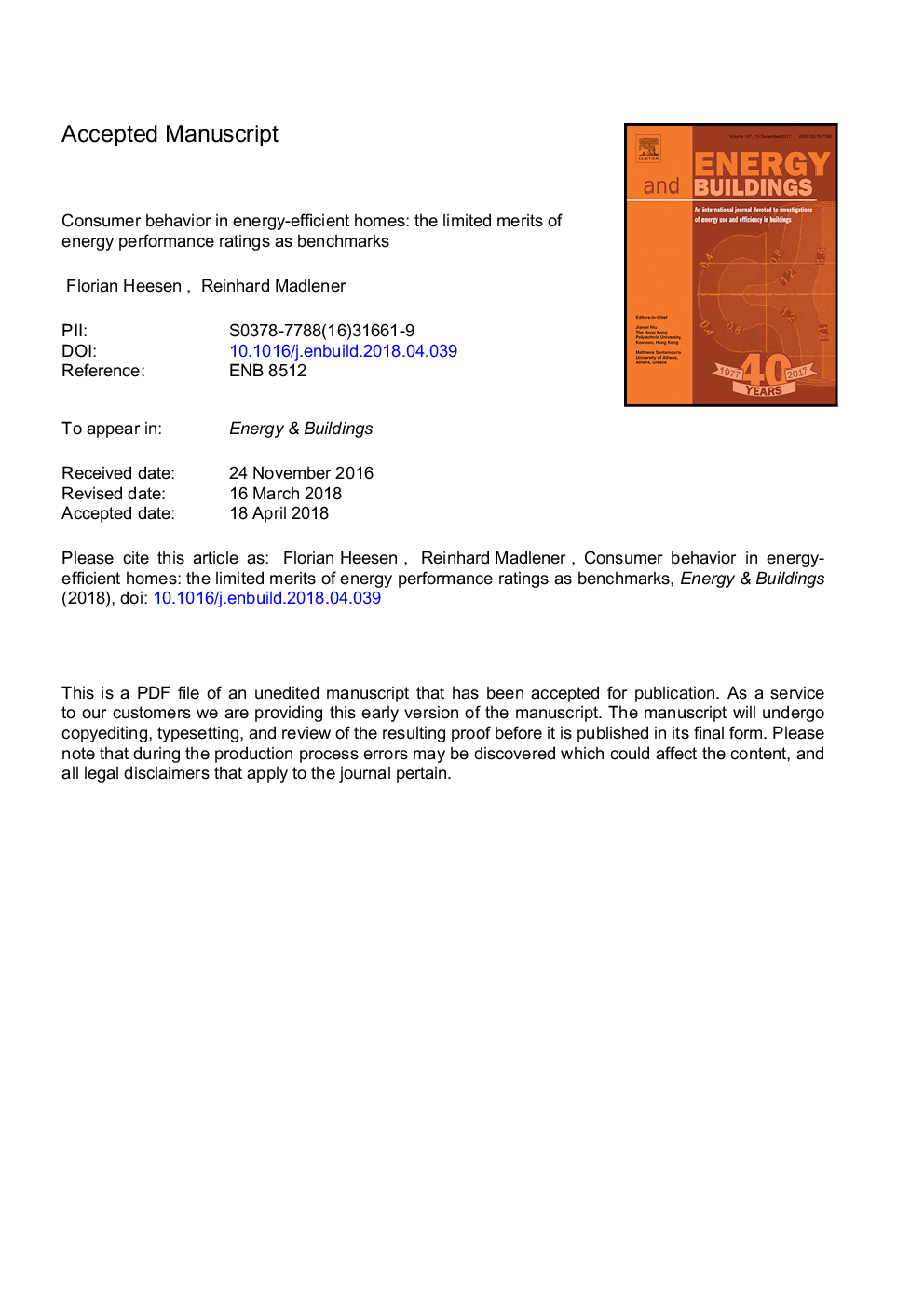| کد مقاله | کد نشریه | سال انتشار | مقاله انگلیسی | نسخه تمام متن |
|---|---|---|---|---|
| 6727676 | 1428918 | 2018 | 27 صفحه PDF | دانلود رایگان |
عنوان انگلیسی مقاله ISI
Consumer behavior in energy-efficient homes: The limited merits of energy performance ratings as benchmarks
ترجمه فارسی عنوان
رفتار مصرف کننده در خانه های کارآمد: مقادیر محدود ارزیابی عملکرد انرژی به عنوان معیار
دانلود مقاله + سفارش ترجمه
دانلود مقاله ISI انگلیسی
رایگان برای ایرانیان
کلمات کلیدی
رتبه بندی انرژی، شکاف عملکرد انرژی، مصرف انرژی گرمایی رفتار مصرف کننده،
موضوعات مرتبط
مهندسی و علوم پایه
مهندسی انرژی
انرژی های تجدید پذیر، توسعه پایدار و محیط زیست
چکیده انگلیسی
In Germany, policy-induced energy efficiency improvements typically aim at reducing primary energy consumption. Private households, on the contrary, pursue the maximization of wellbeing or, in microeconomics jargon, the maximization of utility of the occupants. There is a marked difference between upfront-calculated energy performance ratings (EPRs) and actual heat energy consumption (HEC). From an energy and environmental policy point of view, deviations of energy consumption from ex ante calculated EPRs is problematic, as it jeopardizes their usefulness for (prospective) homeowners, policy-makers and researchers relying on EPRs as a guidance. The EPR-HEC gaps reported are, apart from deviations from the mean aggregate values (i.e. heterogeneity), often attributed to anticipated or unanticipated behavioral effects. From an energy economist's point of view, energy rebound induced by lowered costs per unit of energy service due to increased energy efficiency is one explanation. The related literature almost entirely treats building-specific EPRs as universal standards, trying to explain the empirically observed discrepancies. In this paper, we investigate to what extent the current EPR scheme in place in Germany today can address behavioral issues. To this end, based on two different multi-family housing data sets for Germany and regression analysis, we empirically investigate the deviations between EPRs used in the regulatory norms and the HEC levels observed in reality. We find evidence that it is not necessarily the behavioral dimension, but rather the static and mostly technically guided calculation of the EPRs itself that accounts for the major part of the deviations. We conclude that there is indeed a need for further improvements in the field of EPR regulation and methodology.
ناشر
Database: Elsevier - ScienceDirect (ساینس دایرکت)
Journal: Energy and Buildings - Volume 172, 1 August 2018, Pages 405-413
Journal: Energy and Buildings - Volume 172, 1 August 2018, Pages 405-413
نویسندگان
Florian Heesen, Reinhard Madlener,
